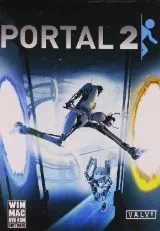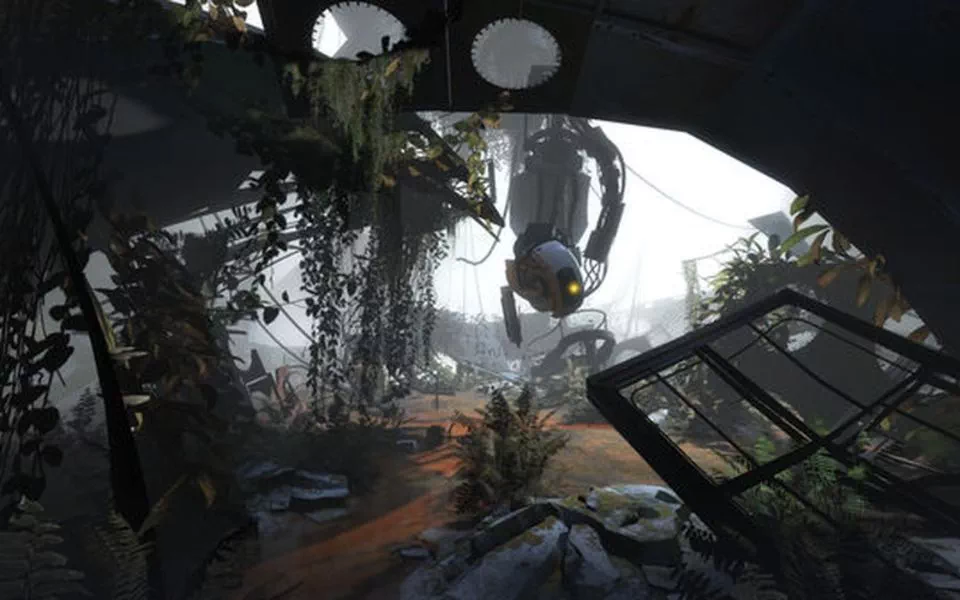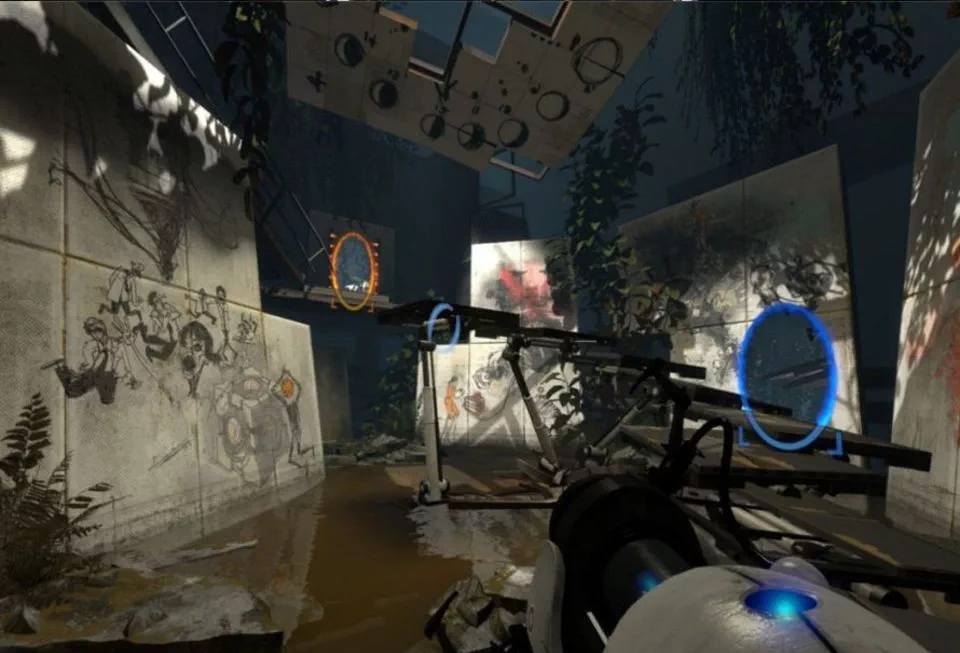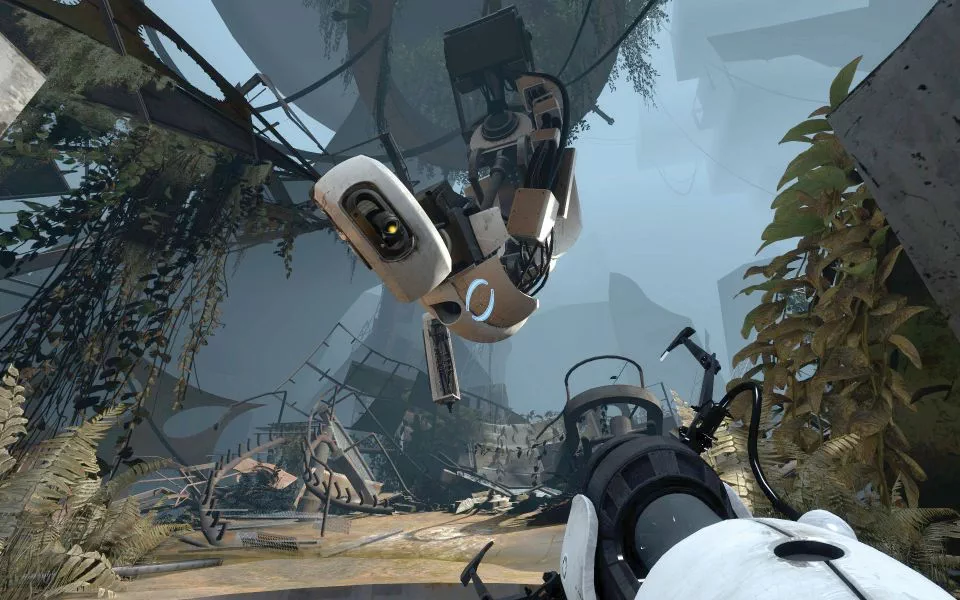Portal - Game Review
Introduction Portal is a first-person puzzle...
By Zora Flatley2327

0

Introduction
After playing through Portal and thoroughly enjoying it, I decided to give its much hyped sequel a try. I got my hands on it, and when I finally got around to playing it, I had a blast, so much so that I now consider Portal 2 to be vastly superior to the original.
The original is still a classic, of course, and has to be played to get a true appreciation of the sequel, but in pretty much all aspects, Portal 2, for me, reigns supreme. To get at why though, requires that we start at the beginning, with the release of Portal 2.
Portal 2 was released in 2011, almost four years after the release of the original Portal. Both games were created by Valve, and both actually run on the same game engine, something I was quite surprised to find out. Portal 2 currently enjoys an “overwhelmingly positive” average rating on Steam, with a score of 98%.
Content
Just like the original, Portal 2 is an action/puzzle game, with the unique twist that the player is in control of a portal gun. Portals can be created on certain conductive surfaces that facilitate the instantaneous transport of characters, items, objects, lasers, and most every mobile entity in the game while perfectly preserving their momentum.
Players have to solve a variety of different puzzles as they undergo “testing” in the Aperture Science Laboratories, until they find the opportunity to break free of the gauntlet and escape the lab.
Throughout all this, they are alternatingly hounded and encouraged by an unknown artificial intelligence, and the game ends with a terrific fight against them, employing all the skills and abilities the player gained throughout the game in the usage of the portal gun.
 https://revyou.com/uploads/thumbnail-960/1591906727710portal2_BlogBanner-890x606.webp
Portal II PC PS3
https://revyou.com/uploads/thumbnail-960/1591906727710portal2_BlogBanner-890x606.webp
Portal II PC PS3 https://revyou.com/uploads/thumbnail-960/1591906727711portal-2-videogame-review-5_11.webp
Portal II PC PS3
https://revyou.com/uploads/thumbnail-960/1591906727711portal-2-videogame-review-5_11.webp
Portal II PC PS3
Players of the original Portal will realize that this is exactly the plot of the original, and while they are correct, the way that Portal 2 arrives at these specific plot points is incredibly different.
The sequel has a vastly improved plot structure in comparison with the original, with the characters GlaDOS and Wheatley (the two primary AIs that the player interacts with throughout the game) having excellent backgrounds and the laboratories themselves gaining immense backstory that the player traverses through when they accidentally fall deep into the bowels of the Aperture Science Laboratories early in the game.
Instead of feeling like a puzzle game with some interesting twists and subplots (as the first game did until the escape arc), Portal 2 feels much more like an adventure, as the player interacts with GlaDOS and Wheatley on a more personal level, uncovers the history of Aperture Science (in a very attractive 50s aesthetic), finds a variety of new gadgets and technologies, and discovers the ultimate power of the portal gun in a brilliant climax, subtly hinted at halfway through the game.
In addition, Portal 2 adds a variety of new mechanics that take full advantage of the portal gun while remaining perfectly in theme. Three new gels are added that can alter the properties of surfaces, letting the player bounce, run quickly, or plant portals in completely new locations.
Launch pads are added, sending the player flying through the air, and new travel beams are created that pick players and objects up and levitate them to far-off destinations.
Valve did extremely well with adding all these mechanics, since all of them fit well within the Portal aesthetic and extend the capabilities of portal-based puzzle levels, each of which are crafted extremely well and often better than the levels in the original, in terms of planning and design.
However, although all this is top-class and would have made for an excellent sequel or independent game anywhere else, Valve went the extra step to make this game unforgettable: it was hilarious. The dialogue in Portal 2 is designed perfectly, and the voice acting talent is excellent on the delivery.
I found the humor to be very reminiscent of The Hitchhiker’s Guide to the Galaxy, often asking existential questions on one line and then mocking them on the next. I often found myself laughing out loud at the hilarious suggestions of Wheatley or GlaDOS’s fury at Wheatley’s ham-handed attempts to run the labs leading to the destruction of her decades of hard work.
I will add my one negative comment with regards to the game’s design, however, which is that it felt a bit too lengthy, especially near the end. By the final few levels, I found myself straining, anxious to solve whatever puzzles were at hand as quickly as possible to see how the plot would resolve itself, without really taking the time to enjoy them.
This probably has something to do with the organization of the game into several chapters, all containing different sets of puzzles. By the time you play through GlaDOS’s puzzles, Cave Johnson’s puzzles of the first, second, and third iterations of Aperture Science Laboratories, and Wheatley’s nasty knockoff puzzles, it starts to kind of get to you.
This probably had something to do with the fact that I played almost the latter five out of six hours of gameplay in a single sitting, but I blame the game for being as addictive as it is.
Technicals
Portal 2 is a far-cry from the uncomfortable mess that was the technical side of the original Portal. Well-polished, smooth, and pleasing to the eye, Portal 2 was a pleasure to watch as I played.
Most, if not all, the textures were updated from their original counterparts, and where before I’d felt uncomfortable looking into the corners of certain rooms in Portal, for example, I could easily feel comfortable searching all the nooks and crannies of the puzzle rooms and enrichment spheres of Portal 2.
The developers also did an excellent job with improving the portals’ mechanics, making their edges feel softer, a bit darker, deeper in color, and just in general better feeling than holes in the ground with orange and blue borders (although to be fair, the portals in Portal were quite good either way).
Besides the vast improvement to the graphics, and remember all this is still with the same base engine Source, I felt like the sound design was greatly improved. Objects felt weightier with the better timing of placement and movement sound, and there were more unique sounds.
I heard echoes when I was in larger chambers, and voices got dimmer the further away I moved. The experience honestly made playing Portal 2 just a lot more immersive overall.
I’d also like to praise the developers for the sheer amount of content packed into Portal 2. Although the game designers do take a lot of credit for how large and rich the game was, the technical side gets a lot of praise from me for just how physically large the game was.
I should add that the technical limitations of the Source engine prevented the game from rendering or maintaining very large areas at a time, with frequent loading breaks that honestly got a little annoying as they went on, but in the brief moments where I was exposed to the bowels of the Aperture Science Laboratories, for example, or I was shown the massive caverns where the original labs were built, I was just lost for words, and I cannot stress enough how much of a change that was to the original game, where the biggest room I’d seen was the boss fight chamber.
Anyway, Portal 2 did an excellent job from a technical perspective, and really the only technical issues I had could only be chalked up to the Source engine being as outdated as it is right now. Also, although I didn’t really look into this when I played, Portal 2 actually adds a multiplayer option to the free play mode, letting you play all your favorite community and first-party designed puzzle levels with your friends!
Conclusion
My conclusion is that Portal 2 is an absolutely terrific game. It is the perfect example of a game developer taking a well-received game, patiently listening to the comments players and critics had, resolved them, and then took the game as far as it could, building on the success of the original to create a product of supreme quality.
While it’s unlikely that we’ll be seeing a third Portal game in the near future (or a third Half-Life, Valve is notorious, after all), Portal 2 still holds up well today in terms of both plot, creativity, intelligent puzzles, and technical achievement.
Updated 4 years ago